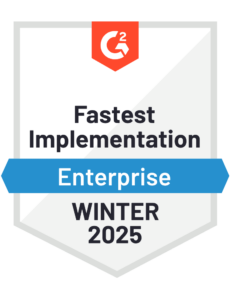Content We Love: ESG Controller: The Risk Management Position You Didn’t Know You Needed
Blog post
Share
ESG reporting is growing in focus, as a recent SEC (Securities and Exchange Commission) proposal has called for public companies to disclose data concerning their impact on the environment including risk management, strategies, and their organizational outlook. As businesses adapt to meet new requirements for delivering high-quality reports tracking their Environmental, Social, and Governance (ESG) metrics, an ESG Controller will be a critical role to standardize these reports. FEI released an article written by Wes Bricker highlighting the importance of establishing an ESG Controller as this new rule comes into effect.
The Importance of Transparency in ESG Reporting
Pressure is coming from all sides for organizations to disclose ESG-related issues and is becoming central to an organization’s financial performance and reputation:
- Investors consider organizations to have fewer risks and be better positioned for future long-term success if they perform well on ESG metrics
- Customers value and trust organizations that prioritize sustainable practices
- An organization’s ESG performance directly links to its employee satisfaction rate
With this combination, it is safe to say that ESG reporting will not be going anywhere in the foreseeable future. Businesses that want to remain competitive within their market will take the next step to incorporate an ESG Controller to assess risks and standardize accordingly.

ESG Impact on Finance and Accounting Processes
ESG will require organizations to evolve their existing processes as they branch out and begin to focus on a broader measure of performance. Finance and Accounting (F&A) teams are already familiar and proficient in the reporting process and many of the metrics included are indicators of financial performance, so it makes sense that they have thus far been taking responsibility for ESG reporting. While the Office of Finance is already an overworked department and another role may be an added stressor, ESG reporting can be strategically implemented for risk management without adding an unreasonable burden to your F&A team with the right automation tools.

Standardization of controls can be a great asset for an F&A team when handling ESG processes and their usual financial close process. Standardization reduces the amount of manual work, increases visibility, and reports issues as they arise. Rather than taking reactive measures, your organization can take proactive steps of risk management and handle problems as they happen in real-time.
Next Steps
Ultimately, there is no time to waste when it comes to investing and preparing for the future of ESG compliance. Year after year, organizations are consistently shifting to processes that will improve their risk management and environmental impact, so while there is still time to make the adjustments for future compliance, organizations should take advantage of this time to strategize. Implementing a leader who understands ESG reporting and solutions that can standardize these processes should be a top priority. The benefits of ESG greatly outweigh the costs and embracing these new standards will protect your organization from unexpected risks.
To explore a more in-depth look at FEI’s insights, read the article.
Written by: Lauren McCrohan






